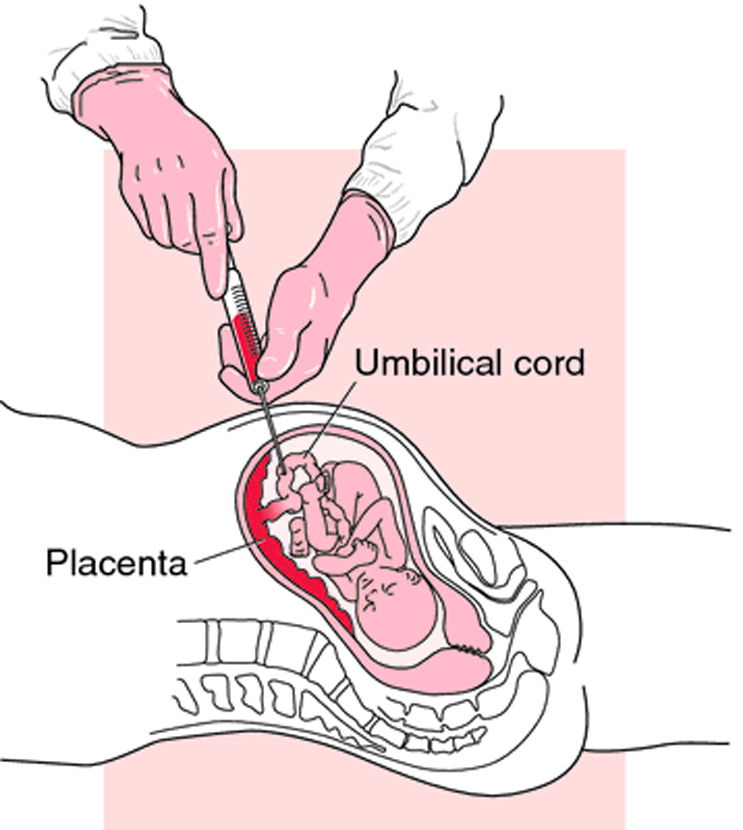
Cordocentesis — also known as percutaneous umbilical blood sampling — is a diagnostic prenatal test in which a sample of the baby's blood is removed from the umbilical cord for testing. Cordocentesis, which is usually done after week 18 of pregnancy, can be used to detect certain genetic disorders, blood conditions and infections. Cordocentesis can also be used to deliver blood and medication to a baby through the umbilical cord.
Why it's done
Cordocentesis is used primarily to detect and treat blood conditions, such as fetal anemia — a low amount of healthy red blood cells in a developing baby.
Cordocentesis is usually done when a diagnosis can't be made from amniocentesis, chorionic villus sampling, ultrasound or other methods. Cordocentesis carries a higher risk of complications to the baby, including death, than other procedures do. Your health care provider will offer the procedure only if other options aren't available or they won't produce results quickly enough.
Rarely, cordocentesis might be used to check fetal chromosomes through chromosome microarray or karyotype analysis. Blood obtained through cordocentesis can also potentially be used for other types of genetic studies.
Source: Mayo Clinic